
POISON
PATRIARCH
Also by Mark Shaw
Stations Along the Way
Road to a Miracle
Beneath the Mask of Holiness
Melvin Belli: King of the Courtroom
Miscarriage of Justice: The Jonathan Pollard Story
The Perfect Yankee
Forever Flying
Down for the Count
Bury Me in a Pot Bunker
Dandelions in the Moonlight
Larry Legend
Testament to Courage

POISON
PATRIARCH
How the Betrayals of Joseph P. Kennedy
Caused the Assassination of JFK
MARK SHAW

Copyright 2013 by Mark Shaw
All Rights Reserved. No part of this book may be reproduced in any manner without the express written consent of the publisher, except in the case of brief excerpts in critical reviews or articles. All inquiries should be addressed to Skyhorse Publishing, 307 West 36th Street, 11th Floor, New York, NY 10018.
Skyhorse Publishing books may be purchased in bulk at special discounts for sales promotion, corporate gifts, fund-raising, or educational purposes. Special editions can also be created to specifications. For details, contact the Special Sales Department, Skyhorse Publishing, 307 West 36th Street, 11th Floor, New York, NY 10018 or .
Skyhorse and Skyhorse Publishing are registered trademarks of Skyhorse Publishing, Inc., a Delaware corporation.
Visit our website at www.skyhorsepublishing.com.
10 9 8 7 6 5 4 3 2 1
Library of Congress Cataloging-in-Publication Data is available on file.
ISBN: 978-1-62873-524-6
Printed in the United States of America
The great enemy of truth is very often not the liedeliberate,
contrived, and dishonestbut the mythpersistent, persuasive,
and unrealistic. Belief in myths allows the comfort of opinion
without the discomfort of thought.
President John F. Kennedy
The mission of the written word is not to buttress high policy,
but to proclaim the truth.
Arthur Miller
Pulitzer Prize-Winning Playwright
Contents
Prologue
I have news for you, the caller said in a high-pitched tone, The Presidents been shot.
Gazing upward in disbelief, Attorney General Robert F. Kennedy attempted to comprehend these words as he listened carefully to FBI Director J. Edgar Hoovers voice on the telephone. It was an unusually warm, sunny afternoon in McLean, Virginia on November 22, 1963, a few minutes before two oclock Eastern time. The attorney general had just enjoyed a swim at his Hickory Hill residence pool after spending the morning in Justice Department meetings focused on how best to continue his crusade to destroy organized crime.
Dressed in a white T-shirt and shorts, RFK asked Hoover, Is it serious? The answer: I think its serious. I am trying to get more details. Ill call you back when I find out more. Bobby covered his mouth with his right hand and returned to his wife, Ethel, and two guests: New York District Attorney Robert Morgenthau and his assistant, criminal division chief, Silvio Mollo. RFK lifted his hands to his face and mumbled, Jacks been shot. It may be fatal.
As Ethel comforted him and the others recoiled in shock, RFK began to telephone seeking details. He finally reached Parkland Hospital in Dallas and was told that his brother was unconscious and that a priest had been summoned. Moments later, another telephone call from Hoover confirmed RFKs worst fears. The Presidents dead, Hoover said without a hint of sympathy.
A few minutes later, Robert Kennedy, the second most powerful man in the country, slowly walked between the swimming pool and the tennis courts on the six-acre estate. Head down, hands in his pockets, tears welled up in Bobbys eyes with every step. Trailing at his heels was his favorite dog, Brumus, a black Newfoundland.
Robert F. Kennedy had lost a brother; the nation had lost a president. At 2:38 p.m. Central time, Lyndon Baines Johnson took the oath of office on Air Force One, still on the tarmac in Dallas, and became the thirty-sixth president of the United States.
Attempting to calm himself when he returned to Ethel and his guests, Bobby, his words barely audible, told his press secretary Ed Guthman: Theres so much bitterness; I thought they would get one of us, but Jack, after all he had been through, [I] never worried about it..... I never thought it would happen. I thought it would be me... theres been so much bitterness and hatred.... Later, Guthman emphasized that he was certain RFK used the word they and not he, and that Bobby believed they might be coming after him next.
Hours later, mob lawyer Frank Ragano, the attorney for Mafia dons Carlos Marcello and Santo Trafficante and Teamsters boss James Hoffa, shared a restaurant table with his wife, Nancy, and Trafficante at the International Inn, a five-star hotel in Tampa, Florida. As related to this author by Nancy Ragano, the two were laughing, joking, and raising glasses of champagne high in the air to toast JFKs assassination.
Why were these men celebrating? The answer may be traced to RFKs statement to Ed Guthman that Bobby believed he would be assassinated instead of his brother. But the key to understanding to whom Bobby was referring when he said theyas in, they would get one of usis to focus on one cabinet appointment John F. Kennedy made shortly after becoming president. It was a decision JFK was forced to make, and one that meant his ultimate doom.
And the starting point, as unlikely as it may seem, to realizing why this decision cost JFK his life revolves around never-before-revealed information about the trial of Lee Harvey Oswalds assassin, Jack Ruby. His attorney Melvin Belli was the most famous lawyer in America, if not the world, at the time. He is also the missing link in the most scrutinized assassination investigation in five decades.
Based on these fresh disclosures, this book examines the common-sense element of motiveincluding focusing for the first time in any investigation or book on why Robert F. Kennedy was not killed in 1963 instead of why John Kennedy was murdered. The focus on motive makes apparent the identity of those who were behind the president and Oswalds death. Instead of conjecture, speculation, and guesswork, close scrutiny of Bellis conduct before, during, and after the Ruby trial establishes a definite connection between Oswald, Ruby, and the individual who hated the Kennedys most: the desperate man who had no alternative but to order the presidents death so as to protect a multi-million-dollar empire and his very freedom.
Most importantly, for historys sake, this fresh approach, while debunking any Oswald Alone theory, leads to the compelling conclusion that the patriarch of the Kennedy family, Joseph P. Kennedy, bears the ultimate responsibility for the senseless death of his son, the thirty-fifth president of the United States. When the dust settled, the elder Kennedy reaped what he had sown in a scenario tantamount to a Greek tragedy with a complex moral structure where abuses of power and broken promises pervaded at every turn, culminating in betrayals, revenge, and, ultimately, murder.
BOOK I
CHAPTER ONE
The Dallas
Assassinations
T his book offers a completely new perspective regarding the twin assassinations in Dallas in 1963: the murders of John F. Kennedy and Lee Harvey Oswald. The underlying theory is based on close examination of fresh facts never revealed before and provides the most plausible explanation to date as to who killed President Kennedy, and why. For fifty years and counting, the truth about the Kennedy assassination has been hiding in plain sight. Even those with good intentions simply missed facts that would have led them to a simple, logical, common sense scenario regarding the events surrounding President Kennedys death.

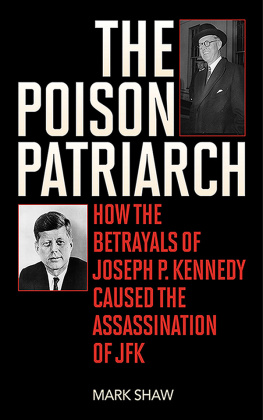
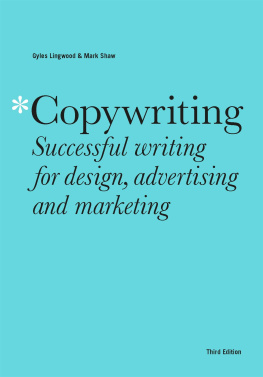
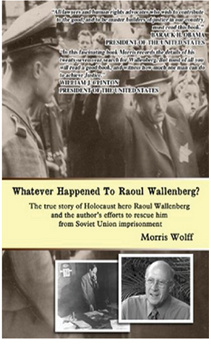

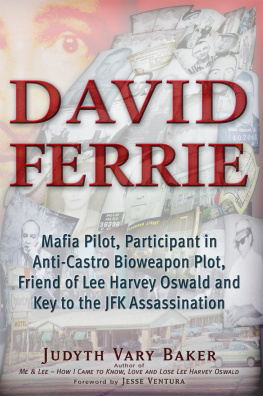
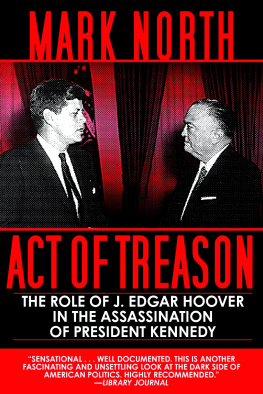
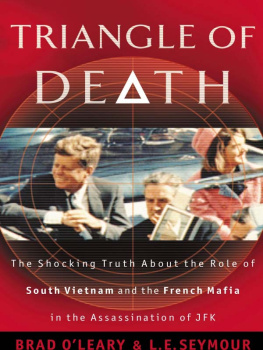
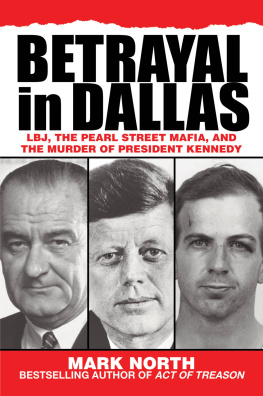
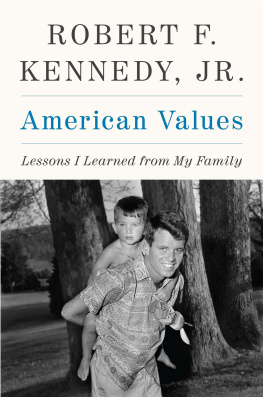
 POISON
POISON